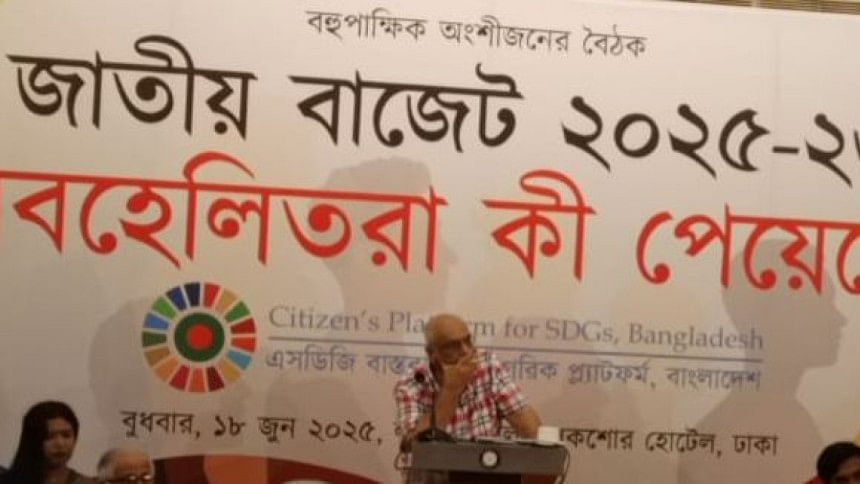Proposed budget disconnected from the government’s broader reform agenda: Citizen’s Platform for SDGs

The proposed budget for the fiscal year 2025-26 remains disconnected from the government's broader reform agenda, said the Citizen's Platform for SDGs, Bangladesh today.
"Key structural and institutional reforms are hardly reinforced," said a paper presented by Towfiqul Islam Khan, a senior research fellow at the Centre for Policy Dialogue (CPD).
He said this at a discussion on the budgetary measures proposed for FY26, held at the Lakeshore Hotel, Dhaka.
The interim government proposed a budget of Tk 790,000 crore for the next fiscal year, commencing in July. This figure is approximately one percent lower than the outgoing fiscal year's budget.
The paper highlighted that the budget overlooked the provisional estimates from Bangladesh's Bureau of Statistics (BBS).
Instead, it relied on the BBS's overestimated targets for the ongoing fiscal year (FY25) to set its benchmarks.
Indeed, to achieve the five per cent target, the Gross Domestic Product (GDP) would need to grow by 6.7 per cent during the second half of the current fiscal year.
"It is too ambitious," Khan said at the event.
He said reaching a four percent target would necessitate the economy growing by 4.7 percent during the second half.
The paper also said that if the BBS's provisional estimates are considered, private sector investment would need to grow by 21.6 percent in the next fiscal year.
This contrasts with a private sector credit growth target of only 11 per cent, which is significantly lower than the current situation.
He said that the government aims to reduce inflation from nine per cent to 6.5 per cent within a year.
However, he warned that achieving this would likely require the continuation of a conservative monetary policy with high levels of policy and interest rates, making private investment costly.
Khan said the budget process "lacks inclusivity and rigour," despite some stakeholder consultations.
"Political actors were completely ignored, and data transparency remains poor," the paper said.

 For all latest news, follow The Daily Star's Google News channel.
For all latest news, follow The Daily Star's Google News channel. 



Comments